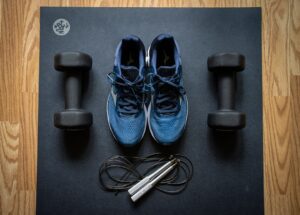Ever felt like your shopping cart had a mind of its own, piling up with things you didn’t really need? Me too.

For years, I found myself stuck in a cycle. I’d buy things, get a quick thrill, and then that item would just add to the clutter in my home and the empty feeling in my wallet. It was a constant chase, always looking for the next "thing" that would somehow complete me. Sound familiar? We live in a world that constantly tells us we need more, shiny new objects, the latest trends. It’s easy to get caught in that current, feeling overwhelmed and, ironically, less fulfilled despite having more stuff.
But here’s the truth: a minimalist approach to shopping isn't about deprivation. It's about liberation. It’s about being intentional with your choices, freeing up your time, money, and mental space for what truly matters. It’s a journey I started some time ago, learning to say "no" to the endless stream of temptations. That discipline, I discovered, is a lot like how I broke free from gaming addiction and binge eating. It takes effort to rewire your brain, but the reward is incredible. It's about finding contentment and appreciating what you already have.
If you’re ready to simplify your life and make your shopping habits work for you, not against you, here are 15 tips that have helped me, and I believe can help you too.
Before You Shop: Set Your Intentions
The most effective shopping happens before you even step foot in a store or open a browser tab. It starts with a clear mind and a solid plan.
- 1. Know Your "Why": Why do you want to shop less? Is it to save money, reduce clutter, live more sustainably, or find more peace? My "why" grew from wanting a life of purpose, one not defined by material possessions. Understanding your core motivation makes it easier to resist impulse buys.
- 2. Make a Master List: Before any trip, list exactly what you need. Stick to it like glue. This simple act is surprisingly powerful. It’s like setting a boundary for yourself, much like I learned to set boundaries around my time to overcome unproductive habits.
- 3. Implement the 30-Day Rule: For non-essential items, wait 30 days before buying. If you still want it and need it after a month, go for it. Often, the urge passes, and you realize you never truly needed it. This delay helps separate true needs from fleeting desires.
- 4. Audit Your Home First: Before buying new clothes or home goods, "shop" your own closet or pantry. You might discover you already own something similar or can repurpose what you have. This saves money and reduces waste.
- 5. Define Your Style and Needs: Understand what truly suits you and fits your life. Do you prefer classic pieces that last? Do you need durable items for an active lifestyle? Knowing this helps you make fewer, better purchases that serve you well.
- 6. Unfollow the Triggers: Those endless emails from retailers, social media ads, and online influencers constantly tempting you? Unsubscribe. Mute. Unfollow. Out of sight, out of mind. Protecting your mental space from consumerist pressures is a huge step.
While You Shop: Mindful Choices
Once you're actually shopping, these tips help you navigate the aisles and online stores with purpose and clarity.
- 7. Ask Key Questions: Before buying anything, ask yourself: "Do I truly need this?" "Will this add real value to my life?" "Do I already own something similar?" "Can I borrow or rent this instead?" These questions create a moment of pause and reflection.
- 8. Prioritize Quality Over Quantity: It’s better to buy one high-quality item that lasts years than several cheap ones that quickly fall apart. This saves money in the long run and reduces your environmental footprint.
- 9. Avoid Sales Traps: A sale isn't a good deal if you don't need the item. Don't buy something just because it's discounted. The real saving comes from not buying things you don't need.
- 10. Shop with Intention, Not Emotion: Shopping can sometimes be an emotional response to stress or boredom. Recognize these feelings. Instead of shopping, find healthier outlets, like a short burst of deep work, a walk, or connecting with a friend.
- 11. Think About the "One In, One Out" Rule: For every new item you bring into your home (especially clothes), let go of an existing item. This prevents clutter from accumulating and forces you to consider if the new item is truly better than what you already have.
After You Shop: Embrace Contentment
The journey doesn't end when you leave the store. What you do after you shop, and how you live with what you have, is just as important.
- 12. Practice Gratitude Daily: I’ve found that a daily gratitude practice shifts my focus from what I lack to what I already have. This simple act reduces the desire for new things because you appreciate your current blessings more deeply. This has been a cornerstone of my own journey, helping me find a balanced, healthy lifestyle.
- 13. Care for What You Have: Take good care of your possessions. Repair things when they break instead of immediately replacing them. This extends their lifespan and fosters a sense of stewardship.
- 14. Prioritize Experiences Over Things: Invest your money in experiences: travel, learning new skills, spending time with loved ones. These create lasting memories and enrich your life far more than any material possession ever could.
- 15. Reflect and Adjust: Periodically review your purchases. What went well? Where did you slip up? Did you stick to your list? Each shopping trip is a learning opportunity. Celebrate the small wins, like resisting an impulse buy, and learn from the misses without judgment. This ongoing process helps you refine your approach.
Embracing a minimalist approach to shopping has been truly transformative for me. It’s not about living without; it’s about living with more intention, more purpose, and more freedom. It’s a continuous journey, and I’m still learning every day. But with each small, deliberate choice, I feel more aligned with the life I want to build.
What's one small step you can take this week to bring more intentionality to your shopping?





